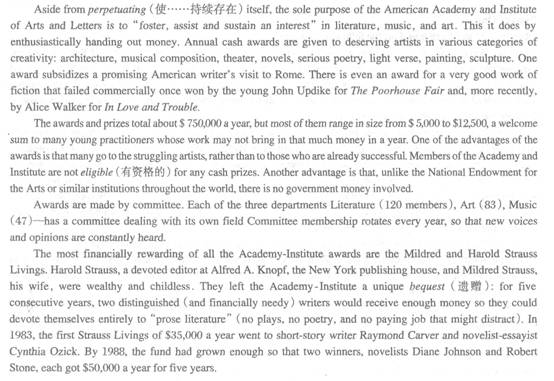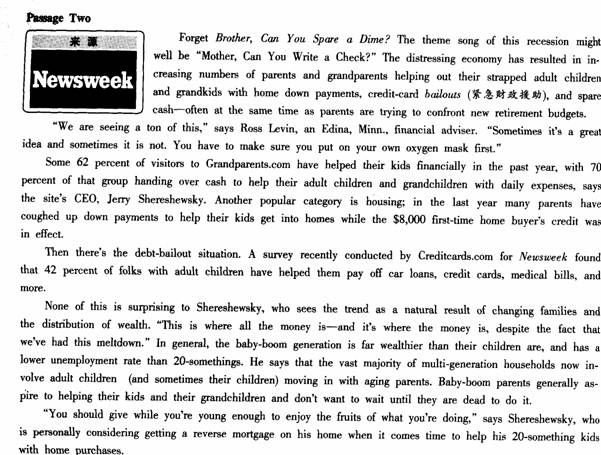цЈчАхЈчфНчНЎяМ233чНц Ё >> шБшЏхчКЇшшЏ >> шБшЏхчКЇщЂхК >> цЏцЅфИчЛ >> цчЋ х
хЎЙ
2013хЙДшБшЏхчКЇшшЏцЏцЅфИчЛ(12ц8цЅ)
хЏМшЏЛ:
хЈчКПцЕшЏцЌцЙуцЏцЅфИчЛушЏщЂяМхЏцЅччцЁхшЇЃцяМхЙЖфПчхщЂшЎАхН >> хЈчКПхщЂ
- чЌЌ1щЁЕяМчЛфЙ шЏщЂ
хПЋщщ
шЏЛ1
1. DirectionsяМIn this partяМyou will have 15 minutes to go over the passage quickly and answer the questions on Answer Sheet lяМFor questions 2-12,choose the best answer from the four choices marked AяМ BяМC and DяМComplete the sentences with the information given in the passageяМ
ууLinguistic Ability of Children
AяМууScientists may finally have an explanation for why children reign supreme when it comes to learning new languageяМUsing MRI and animation technology to study the brains of childrenяМresearchers like Dr.Paul Thompson of UCLA have discovered that children are processing language information in a different region of the brain than adultsяМ
BяМууThere are different areas in the brain controlling different functions in our livesяМWhen we brush our teethяМsign our names or drive a carяМwe donтt consciously thinkяМтmove the right hand up and down like thisяМттcapitalize this letterяМтorтturn the wheel 30 degrees to the leftяМтThese are examples of automatic brain functionяМWhen children acquire languageяМthis same part of the brainяМ called theтdeep motor areaяМтis what they useяМso the language is like second natureяМ
CяМууBut when adults learn a second or third languageяМtheir brains operate differentlyяМThe window of opportunity to imprint information and skills in the deep motor region of the brain is widest during early childhood and nearly shut by the time we reach about l 8яМThereforeяМadults have to store information elsewhereяМin a more active brain regionяМAs a consequenceяМadults usually think sentences through in a native tongue and then translate them wordтby-wordяМinstead of thinking automatically in another language as a child wouldяМEven for people with extensive training in fl second language as an adultяМwho feel their speech is automaticяМon a neurological level the brain is still operating differently from a childтsяМ
DяМууResearch into the neurology of language acquisition is proving useful because understanding theтgeographicтdifferences of language learning in children versus adults may influence teachers and their decisions about foreign language instruction. As an example, Thompson says simply teaching young children the sounds and accents of other languages at an earlier age may be valuable, even if they are not getting full instruction in the language. Learning those sounds later in life from a neurological perspective can be more difficult.
E.уу There is no proof of any physiological change that fundamentally alters language learning between childhood and adulthood. Non-physiological explanations are available for every observation made thus far, and they are just as plausible as the physiological explanations. The notion that children are physiologically different from adults with respect to language learning is accepted linguistic dogma, not proven fact. The dogma is most readily accepted by linguists who can't learn other languages, and is considered the most questionable by people who have learne
2. ц ЙцЎфИшПАццхч12-63щЂяМ


The "memory pill", as is mentioned in the first paragraph, is not sold over the counter now mainly because__________.

3. шЏЗц ЙцЎфЛЅфИх хЎЙхч63-63щЂ

The passage mainly discusses __________.
AяМaward-winning works of literature
BяМan organization that awards artists
CяМthe special donation of an artist
DяМthe individual patrons of artists
4.
ц ЙцЎфЛЅфИх хЎЙяМхч63-22щЂу
According the passage, people areregarded as "strapped" if they are _________
AяМ A) jobless in the recession
BяМ B) in financial difficulties
CяМ C) dependent on their parents
DяМ D) troubled by credit card debt .
5. ц ЙцЎфЛЅфИшЕцхч22-47щЂ

It can be concluded that if people continue to concern themselves with air pollution and physical fitness__________.

6. шЏЗхЈяМ56яМхЄхЁЋфИчцЁу
чПЛшЏщЂ
7. Aromatherapy is___________ (фИфЛ цхЉфКцОцОяМшфИхЏЙхшЅфЙхОцц)яМ
8. ц ЙцЎфЛЅфИццхч47-48щЂяМ

шЏЗхЈяМ47яМхЄхЁЋфИчцЁу
9. ц ЙцЎфЛЅфИцчЋ хщщЁЙхч{TSE}щЂяМ


(47)хЄчцЁ__________
чПЛшЏщЂ
10. I am going to purchase this course,________________________яМц шЎКцшІфНхКфЛфЙц ЗччКчВяМ.
1. DirectionsяМIn this partяМyou will have 15 minutes to go over the passage quickly and answer the questions on Answer Sheet lяМFor questions 2-12,choose the best answer from the four choices marked AяМ BяМC and DяМComplete the sentences with the information given in the passageяМ
ууLinguistic Ability of Children
AяМууScientists may finally have an explanation for why children reign supreme when it comes to learning new languageяМUsing MRI and animation technology to study the brains of childrenяМresearchers like Dr.Paul Thompson of UCLA have discovered that children are processing language information in a different region of the brain than adultsяМ
BяМууThere are different areas in the brain controlling different functions in our livesяМWhen we brush our teethяМsign our names or drive a carяМwe donтt consciously thinkяМтmove the right hand up and down like thisяМттcapitalize this letterяМтorтturn the wheel 30 degrees to the leftяМтThese are examples of automatic brain functionяМWhen children acquire languageяМthis same part of the brainяМ called theтdeep motor areaяМтis what they useяМso the language is like second natureяМ
CяМууBut when adults learn a second or third languageяМtheir brains operate differentlyяМThe window of opportunity to imprint information and skills in the deep motor region of the brain is widest during early childhood and nearly shut by the time we reach about l 8яМThereforeяМadults have to store information elsewhereяМin a more active brain regionяМAs a consequenceяМadults usually think sentences through in a native tongue and then translate them wordтby-wordяМinstead of thinking automatically in another language as a child wouldяМEven for people with extensive training in fl second language as an adultяМwho feel their speech is automaticяМon a neurological level the brain is still operating differently from a childтsяМ
DяМууResearch into the neurology of language acquisition is proving useful because understanding theтgeographicтdifferences of language learning in children versus adults may influence teachers and their decisions about foreign language instruction. As an example, Thompson says simply teaching young children the sounds and accents of other languages at an earlier age may be valuable, even if they are not getting full instruction in the language. Learning those sounds later in life from a neurological perspective can be more difficult.
E.уу There is no proof of any physiological change that fundamentally alters language learning between childhood and adulthood. Non-physiological explanations are available for every observation made thus far, and they are just as plausible as the physiological explanations. The notion that children are physiologically different from adults with respect to language learning is accepted linguistic dogma, not proven fact. The dogma is most readily accepted by linguists who can't learn other languages, and is considered the most questionable by people who have learne
2. ц ЙцЎфИшПАццхч12-63щЂяМ


The "memory pill", as is mentioned in the first paragraph, is not sold over the counter now mainly because__________.

3. шЏЗц ЙцЎфЛЅфИх хЎЙхч63-63щЂ

The passage mainly discusses __________.
AяМaward-winning works of literature
BяМan organization that awards artists
CяМthe special donation of an artist
DяМthe individual patrons of artists
4.

ц ЙцЎфЛЅфИх хЎЙяМхч63-22щЂу
According the passage, people areregarded as "strapped" if they are _________
AяМ A) jobless in the recession
BяМ B) in financial difficulties
CяМ C) dependent on their parents
DяМ D) troubled by credit card debt .
5. ц ЙцЎфЛЅфИшЕцхч22-47щЂ

It can be concluded that if people continue to concern themselves with air pollution and physical fitness__________.

6. шЏЗхЈяМ56яМхЄхЁЋфИчцЁу
чПЛшЏщЂ
7. Aromatherapy is___________ (фИфЛ цхЉфКцОцОяМшфИхЏЙхшЅфЙхОцц)яМ
8. ц ЙцЎфЛЅфИццхч47-48щЂяМ

шЏЗхЈяМ47яМхЄхЁЋфИчцЁу
9. ц ЙцЎфЛЅфИцчЋ хщщЁЙхч{TSE}щЂяМ


(47)хЄчцЁ__________
чПЛшЏщЂ
10. I am going to purchase this course,________________________яМц шЎКцшІфНхКфЛфЙц ЗччКчВяМ.
чИх
ГцЈш
шЏОчЈх
шДЙшЏхЌ
| ПЮГЬзЈвЕУћГЦ | НВЪІ | дМл/гХЛнМл | УтЗбЬхбщ | БЈУћ |
|---|---|---|---|---|
| ЁЖДѓбЇгЂгяЫФМЖЁЗОЋЦЗАрЃЈАќРЈгяЗЈЁЂДЪЛуЁЂЗвыЃЉ | ЖЁбЉУї | ЃЄ100 / ЃЄ100 |  |
БЈУћ |
| ЁЖДѓбЇгЂгяЫФМЖЁЗОЋЦЗАрЃЈдФЖСРэНтЃЉ | ЖЁбЉУї | ЃЄ100 / ЃЄ100 |  |
БЈУћ |
| ЁЖДѓбЇгЂгяЫФМЖЁЗОЋЦЗАрЃЈЬ§СІЃЉ | ЖЁбЉУї | ЃЄ100 / ЃЄ100 |  |
БЈУћ |
| ЁЖДѓбЇгЂгяЫФМЖЁЗОЋЦЗАрЃЈаДзїЃЉ | ЖЁбЉУї | ЃЄ100 / ЃЄ100 |  |
БЈУћ |
ччЙфИщЂ







